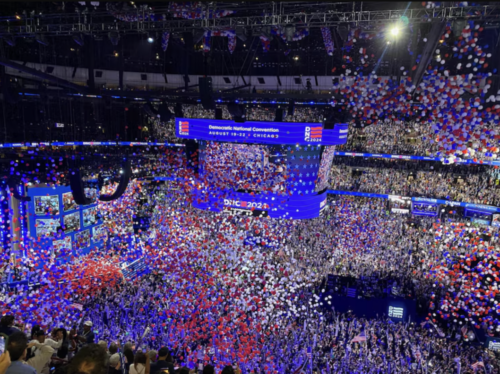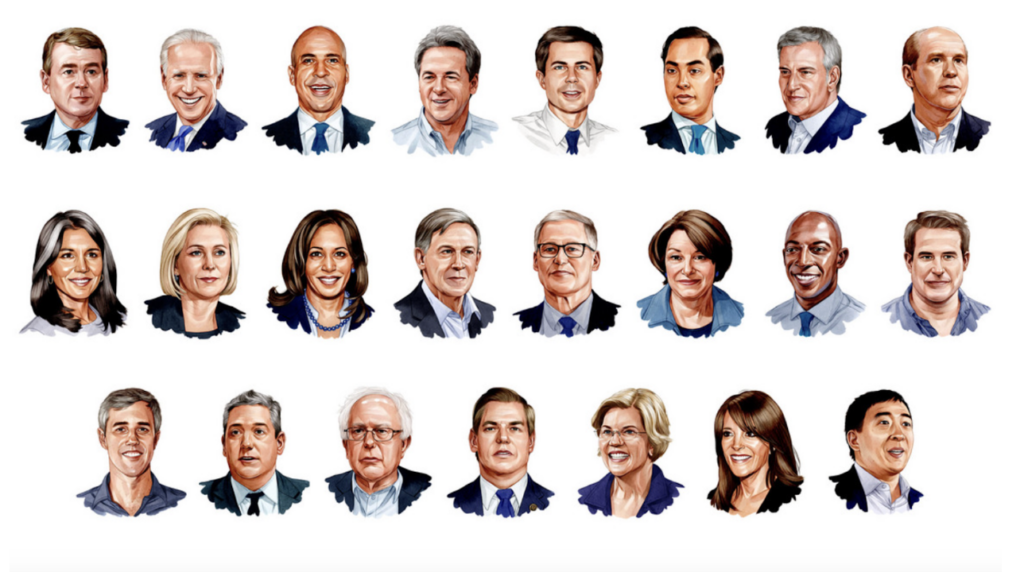“Your generation is going to save the world,” countless adults declared during my adolescence. The compliments only continued as I got older as baby boomers explained how Gen Z will “save the planet” and how our generation is “incredibly accepting.” For years, I believed this rhetoric. I thought my generation was the voice of change and would vote with social, economic and environmental morality at the top of our minds.
Yet, in the days after the election, I heard misinformation about Donald Trump across my campus. Classmates declared that “Trump was better for the economy” or said, “Trump will finally bring down the cost of groceries and gas.” I was shocked that my fellow students had fallen into misinformation traps about Trumponomics. However, statistics regarding the election confirmed that voters aged 18-29 have begun moving right.
Overall, Kamala Harris won voters ages 18 to 29 by six points. However, only 42% of young people turned out to vote, compared to the 53% of young voters who voted in 2020. Additionally, there was a 16-point gender gap between young men and women, where men leaned right. However, even young women turned out in higher numbers for Trump. In 2020, 33% of young women voted for him, while in 2024, 40% voted Republican.
As young voters move right, there seems to be significant voter apathy within the generation. 79% of voters aged 65 and older, 69% of voters between 45-64 and 57% of voters 18 to 29 followed the election, reflecting a decline in political involvement by age. Generation Z is not the generation of activism and forward-thinking, it is apathetic and frustrated.
In fact, in the month since the election, Trump has even gained support from Gen Z voters. In October, Trump was favored by 38% of Gen Z voters. By early December, he was favored by 51% of these voters. Trump’s use of podcasts and TikTok has paid off as he continues to increase his popularity with the younger demographic. Since Gen Z generally doesn’t follow politics closely, the generation must be reached through the media they regularly consume, where Democrats often struggle to connect with viewers. Often, their use of social media comes off as ingenuine or misses the mark.
Generation Z is a cynical and untrusting generation. 51% of Generation Z reported having very little trust in the presidency, and 44% trust the Supreme Court very little. Gen Z doesn’t have faith in institutions as a whole as 49% of Gen Z has very little trust in large technology companies, the news (43%), the criminal justice system (41%), the police (37%), the military (30%) and the medical system (26%). These establishments have failed us. We have been given good reason to feel distrustful of American systems when inflation, police brutality, school shootings, socio-economic disparities, climate change and global turmoil have been the cornerstones of our childhoods. Generation Z does not believe in the establishments that define the United States of America, which is an indicator of why the generation has had decreasing voter turnout and has begun slowly turning to the Republican party. The party has been able to connect with and manipulate voters’ institutional distrust.
In the elections that Gen Z voters can remember, the country has been incredibly polarized. Most of Gen Z grew up while Trump was president, so we have always known politics to be volatile and explosive. During 20th century presidential debates, candidates did not interrupt one another or tweet menacing things about each other. All this to say, Trump is nothing new for this generation. He is not seen as a threat to democracy by Generation Z voters when he is one of the only presidents they have ever truly known. Therefore, the younger generation doesn’t feel as intimidated by his candidacy as older Democrats expected them to.
The Democratic Party will not be “saved” in 2028 by a voting bloc of young people. The generation is largely untrusting and indifferent: a combination that will make their votes incredibly hard to win. While young women are still voting blue by large margins, their move to the right over the last four years is a sign of a much larger issue for the Democratic Party. The Democratic Party must win back Gen Z’s votes as they have proven that their engagement in elections will be earned rather than easily given. The party must find new forms of media that connect with young people, like podcasts, TikToks or Instagram Reels. Additionally, the Democratic Party must begin motivating young voters and giving them hope for the future. The deeply rooted cynicism in the generation has led to their connection with angered Republicans. Gen Z voters want change, and they want it now. The next campaigns for the party must begin to be angry, relentless and, most importantly, inspiring.
Source: Politico







